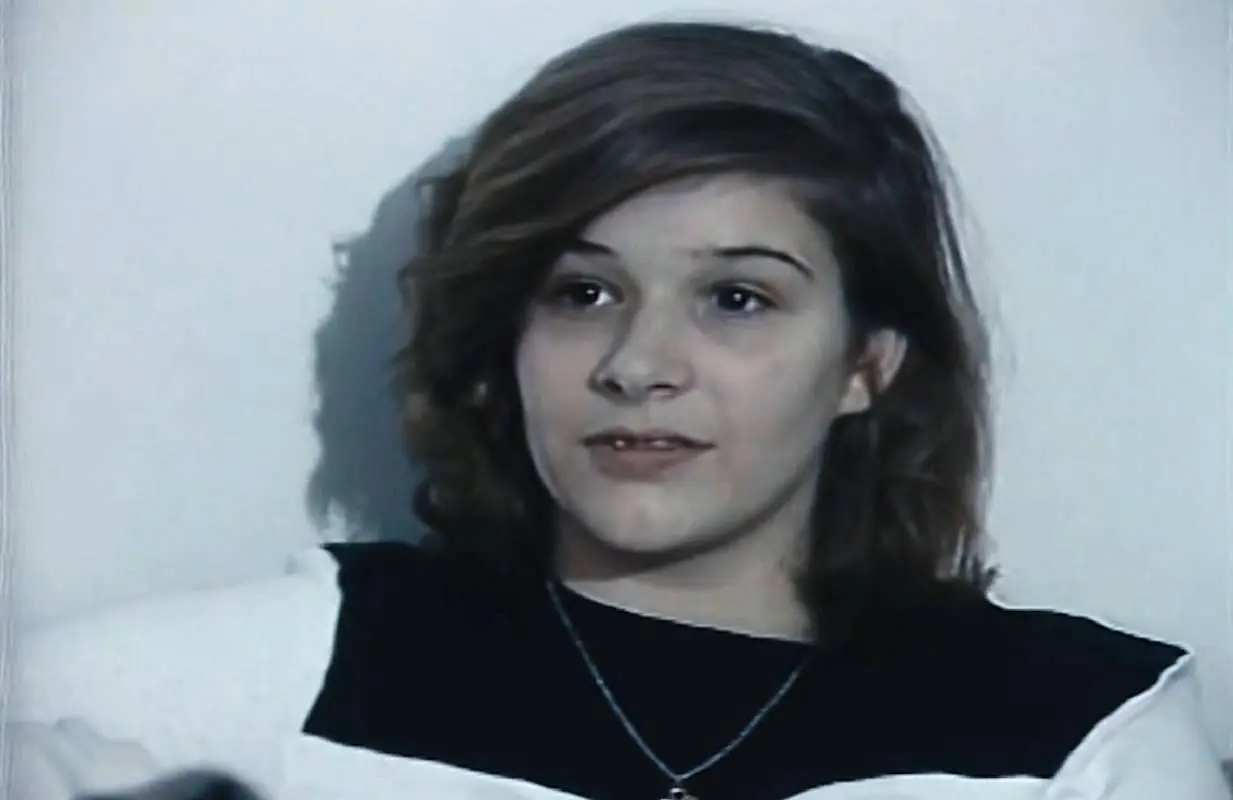Demons and Saviors Deftly Avoids Sensationalism in Telling Christina Boyer's Story
-
 Christina Boyer in Demons and Saviors (Photo: ABC News)
Christina Boyer in Demons and Saviors (Photo: ABC News)When she was 14 years old, Christina Boyer was dubbed “poltergeist girl.” Throughout the 1980s, she was celebrated and studied for reportedly possessing telekinetic abilities and inciting ghostly behavior wherever she went. There were always skeptics, of course, but some of the most damning incidents were corroborated by her adoptive family, parapsychologists, and several journalists — a front-page newspaper photo of a telephone flying across the room without being touched became, at the time, the ultimate proof that something supernatural was really happening.
Years later, in 1992, Boyer was sent to jail for the murder of her 3-year-old daughter, Amber. She was once again in the media, this time being labeled as a monster and a bad mother. Her nickname was used to turn the public against her, and she’s remained in prison ever since for a crime she says she didn’t commit.
It wouldn’t take much for a reimagining of Boyer’s life — ghost stories combined with a grisly murder and Death Row — to become completely sensationalized. But ABC News and Hulu’s Demons and Saviors, directed by Alex Waterfield (Dateline), takes an admirably balanced approach to rehashing the details of the decades-old case, setting itself apart from the slew of exploitative docuseries dominating streaming.
Demons and Saviors doesn’t promise answers to an unanswerable question, the fatal flaw of series like MH370: The Plane That Disappeared and Crime Scene: The Vanishing at the Cecil Hotel. Instead it allows Boyer to tell her side of the story through telephone calls from jail, supplemented by interviews with a healthy mix of people who believe her and people who don’t. Even the pacing and episodic focus of the series keeps things from getting too speculative — the details surrounding Boyer’s “poltergeist girl” media attention is mostly contained to one episode, the details of her conviction to another, and the continued exploration of the details of the case to another. There's never a moment that implies Boyer’s potential abilities made her a murderer or any other sort of “what if?” posed at all, just a retelling of the story as it happened through multiple perspectives.
The filmmakers only slightly seem to be pushing an agenda, prominently featuring a group called “Team Tina” that to this day has been working to have Boyer exonerated. But even in those details, there’s a larger point being made about the flaws of the criminal justice system. Members of Team Tina are quick to both mention their bias after having built a friendship with Boyer, while also maintaining that they’ll never really know who killed Amber. Their ultimate objective is to poke holes in the Georgia District Attorney’s flimsy argument and draw attention to practices that lead to wrongful convictions, which, in Boyer’s case, meant being manipulated into signing an Alford plea deal before receiving a fair trial.
This balanced take should not be confused with boring. The facts of the case and details revealed about Boyer’s past are interesting enough on their own without any manipulation. Boyer was abused for most of her life, first by her foster brother and then by multiple partners. Her adoptive parents were the ones who called press conferences to show off her abilities, at least once making Boyer sit for up to nine hours in front of a group of cameras until something paranormal happened (and that time, nothing did). Though she was just a kid when this happened, the District Attorney used it as evidence that she was a liar who couldn’t be trusted. She faced the death penalty for murder despite a shocking lack of evidence. The campaign to revisit her case was started by a Dutch “art-ivist” named Jan Banning who later created an entire exhibition around her story. That narrative doesn’t need much embellishing.
Demons and Saviors is the latest docuseries in ABC News’ summer lineup to remind us that the network has a long history as a reputable source for well-considered true crime coverage — now the studio’s partnership with Hulu is bolstering the streamer’s reputation in the genre. In early July, The Ashley Madison Affair got creative to incorporate testimonials from satisfied users of the site, providing a counterpoint to those who claimed it ruined their lives. Betrayal: The Perfect Husband spent time detailing the creation of the podcast the series is based on, which is told mostly from Jenifer Faison’s perspective, before expanding the scope for the docuseries. Additions like these only enhance the genre.
Notably absent from Demons and Saviors is David Herrin, Boyer’s boyfriend who was watching Amber when she died. The filmmakers note that multiple requests to be interviewed for the series went unanswered, but they still managed to incorporate his account of events via recorded interviews with investigators. It may seem like an insignificant detail — if he didn’t want to tell his story, then why let him? But those moments demonstrate that every aspect of the case was considered before sending this production to streaming. How viewers decide to interpret Boyer’s story from here is entirely up to them.
Demons and Saviors is streaming on Hulu.
Brianna Wellen is a TV Reporter at Primetimer who became obsessed with television when her parents let her stay up late to watch E.R.
TOPICS: Demons and Saviors, ABC News Studios, Hulu, Christina Boyer, ABC News, True Crime